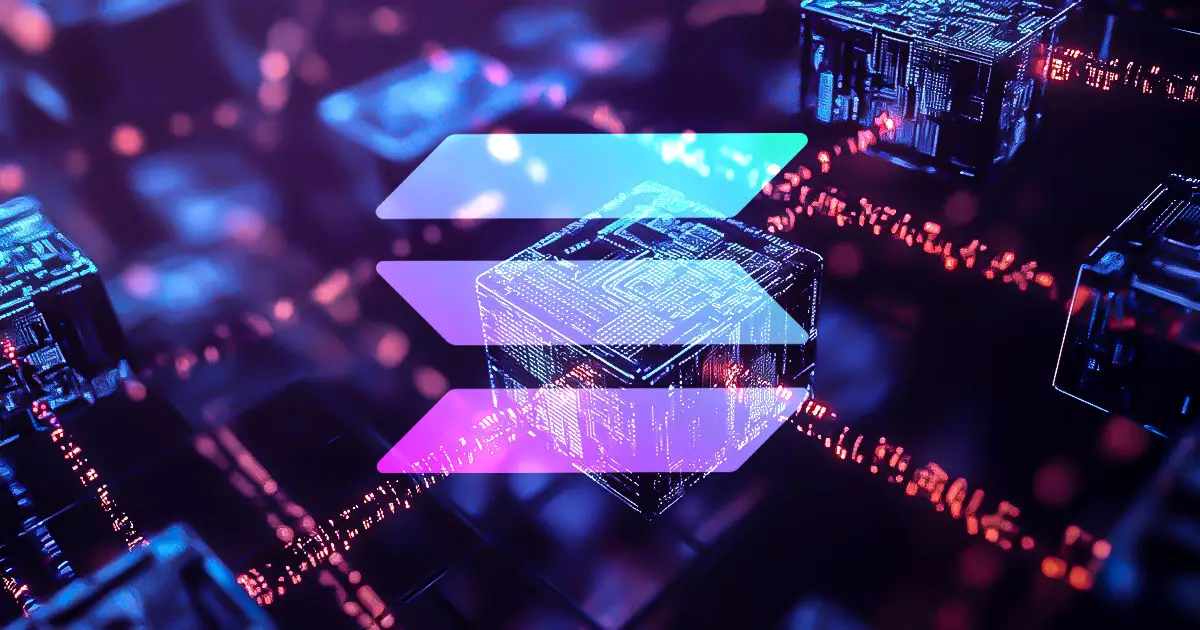The cryptocurrency landscape is no stranger to controversy, and the recent transaction delays affecting Solana users on Coinbase have sparked significant backlash from the community. With reports surfacing about transactions taking up to 45 minutes to process, Solana enthusiasts swiftly took to social media to express their frustration. Compared to the more efficient Base, Algorand, Arbitrum, and Avalanche networks, such delays are alarming and indicative of underlying issues in how exchanges manage blockchain transactions.
In response to the uproar, Coinbase’s support team suggested that the delays were tied to “wallet maintenance or blockchain issues.” This explanation, however, appeared to deflect accountability from the platform itself, and instead, shift the blame towards Solana’s infrastructure. Such a response was particularly unfortunate for many users, as it seemed to minimize Solana’s established prowess as the third-largest blockchain network, trailing only Bitcoin and Ethereum.
The implication that Solana’s technology might be at fault went down poorly with the community, leading to accusations that Coinbase was prioritizing its own Base network over a rival blockchain’s capabilities. The tensions around this issue take on greater significance, especially for those deeply invested in the Solana ecosystem.
Key figures within the Solana community were quick to contest Coinbase’s claims. Mert Mumtaz, CEO of Helius Labs, asserted that the delays were primarily originating from Coinbase’s internal indexing systems rather than any failings on Solana’s part. Austin Federa, Solana’s Head of Strategy, amplified this sentiment, articulating dissatisfaction over Coinbase’s communication strategy. He remarked that the delays were a result of “boring old internal system issues” at Coinbase and had nothing to do with the Solana network’s core infrastructure.
Their statements point to an internal error at Coinbase that could have been managed with better communication and transparency. By attributing the delays to external factors, Coinbase may have inadvertently fueled mistrust and frustration within the crypto community.
In the wake of growing dissatisfaction, a community note was added to Coinbase’s support statement, revealing that the exchange had experienced unexplained delays related to Solana transactions for an extended period. Interestingly, the note juxtaposed Solana’s Time to Finality (TTF) of 12 seconds with the significantly longer times recorded for Base and Arbitrum, lending credence to the argument that Solana’s infrastructure was not at fault.
Though Coinbase eventually acknowledged the delays and claimed to have resolved the issue by November 28, the damage to its reputation may have been done. Andrew Allen, a Protocol Specialist at Coinbase, further confirmed that the issues had been addressed, indicating a commitment to rectifying past failures. However, ongoing criticisms from within the community suggest this incident has lasting implications for Coinbase’s relationship with the Solana ecosystem.
In the aftermath of the controversy, voices on both sides continue to engage in a heated debate. While some community members remain critical of Coinbase’s response, others, like Milk Road creator Kyle Reidhead, encouraged a balanced perspective focused on Coinbase’s broader contributions to the crypto ecosystem. This suggestion to appreciate context over grievance calls for constructive dialogue moving forward, emphasizing collaboration over contention. As the crypto sphere evolves, it will be crucial for exchanges and blockchain projects alike to prioritize transparent communications to foster trust and unity within the community.

